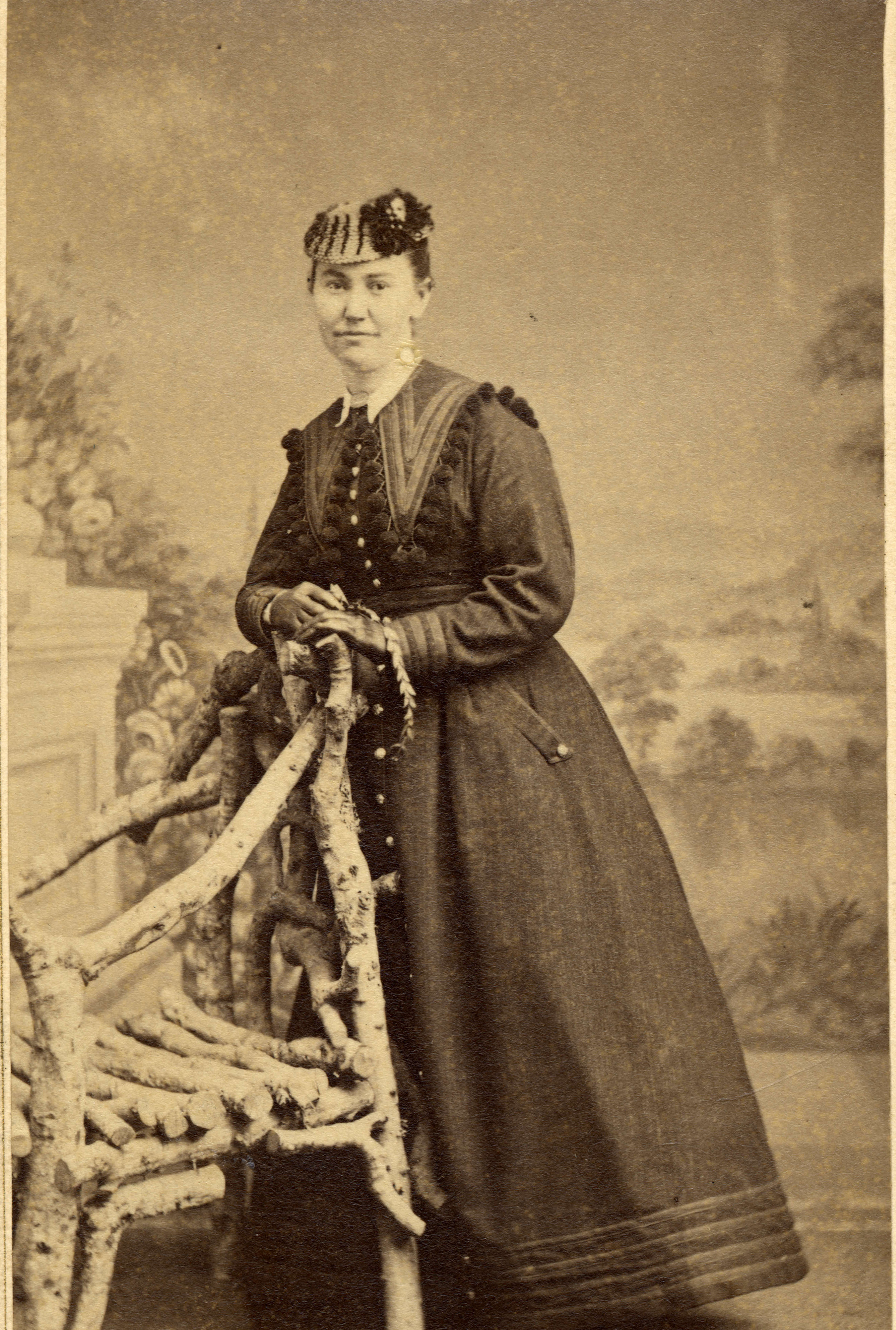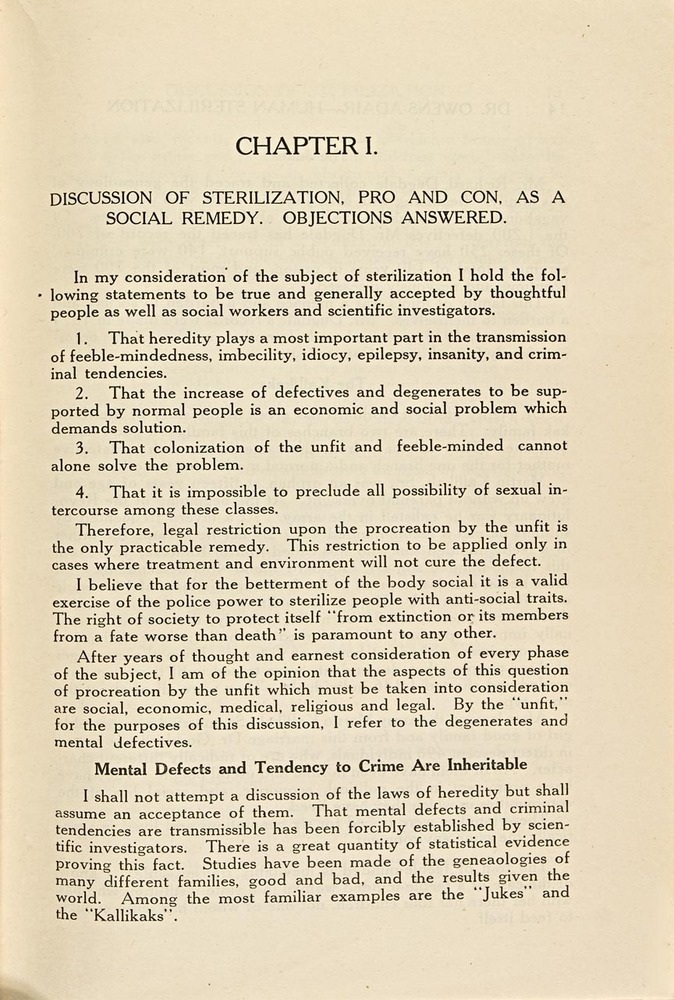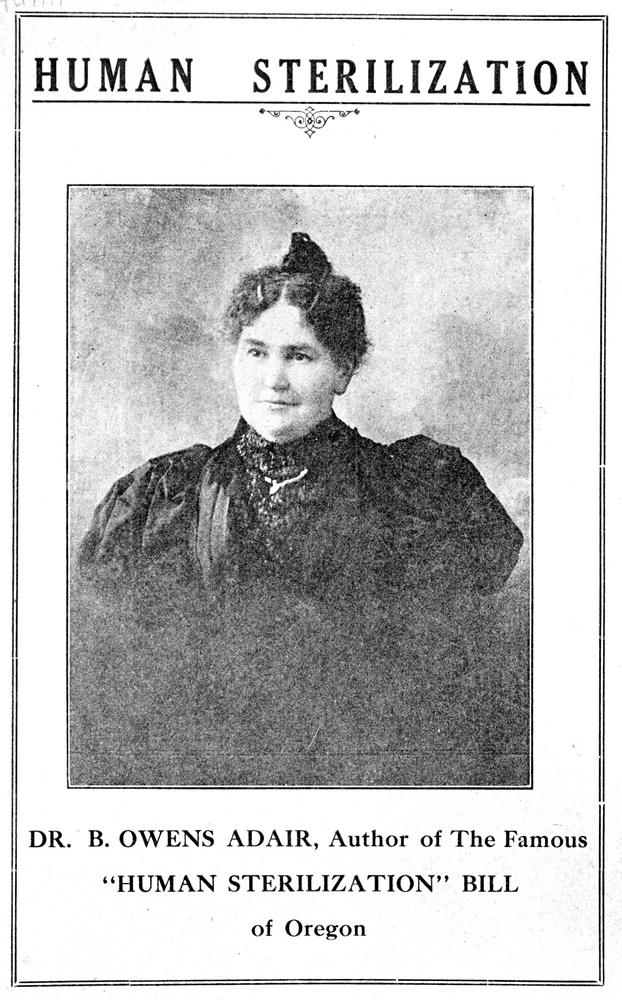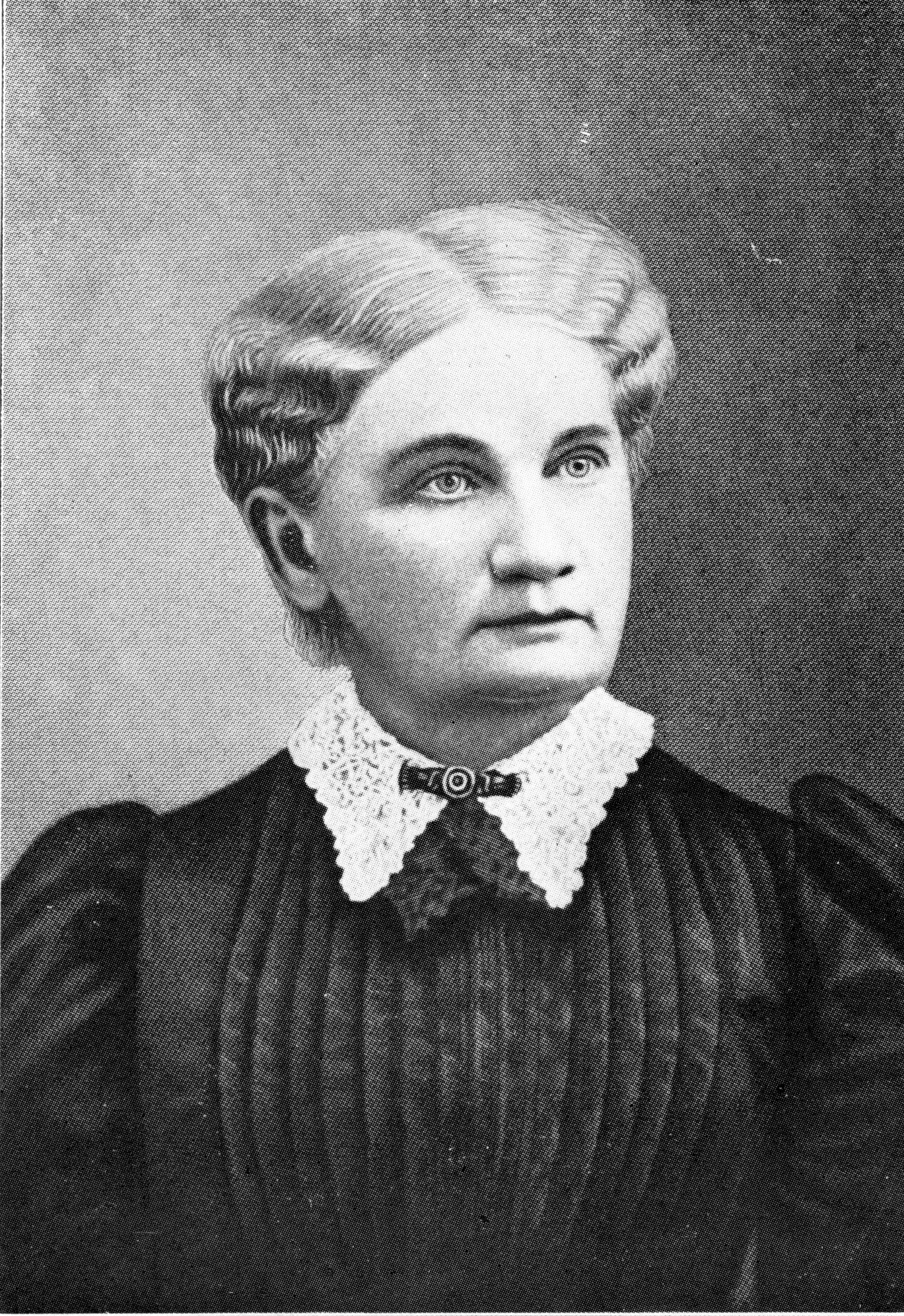Bethenia Owens-Adair overcame seemingly insurmountable obstacles to become a social reformer and one of Oregon's first women doctors with a medical degree. Some Oregon women, such as Dr. Mary Thompson, called themselves "doctor" but had not attended medical school and did not possess degrees. A few others, such as Owens-Adair and Mary P. Avery Sawtelle, earned medical degrees and established early practices in Oregon.
Bethenia Owens was born on February 8, 1840, to Tom and Sarah Damron Owens, in Van Buren County, Missouri, the third of eleven children. In 1843, the family journeyed to Oregon Country and settled first at Clatsop Plains and then in the Umpqua Valley. They were part of the first major wagon train migration to Oregon, which Jesse Applegate helped lead. Owens-Adair treasured tales of pioneer bravery she heard from Applegate and others and included a number of them in her autobiography, Dr. Owens-Adair: Some of Her Life Experiences (1906).
At age fourteen, barely able to read or write, Bethenia Owens married Legrand Henderson Hill. She was a mother at sixteen. At age nineteen, facing the stigma of divorce, Bethenia left Hill, took back her name, and secured an education. She supported herself and her son George, first as a domestic, then as a teacher and milliner, and eventually as a physician.
Doors were closed to Owens-Adair because she was female. She confessed in her autobiography: "The regret of my life up to the age of thirty-five was, that I had not been born a boy, for I realized very early in life that a girl was hampered and hemmed in on all sides simply by the accident of sex." Yet, she persevered and graduated in 1874 from the Eclectic Medical College of Pennsylvania. She earned a second medical degree in 1880 from the University of Michigan.
In Oregon, Owens-Adair practiced medicine in Roseburg, Portland, and Clatsop County. Eventually, she doctored in North Yakima, Washington, where her son George was also a physician. Her early Portland practice involved medicated vapor baths, combined with electricity, to treat rheumatism and chronic diseases. Later, she specialized in the treatment of women and children. Her second marriage, in 1884, to Col. John Adair, ended in divorce in 1907.
Owens-Adair was passionately involved in reform movements. The effects of alcohol in her family drew her to work in the temperance movement. Frustrated by gender prescriptions and inspired by friend Abigail Scott Duniway, she argued for woman suffrage as well as women's education, employment, and health.
Convinced of the power of heredity, Owens-Adair was a "crusader" in the eugenics movement, which emerged in early twentieth-century America as a less-than-scientific application of Darwin's theory of evolution. Owens-Adair advocated and led campaigns for sterilization of the "unfit." In 1923, the Oregon legislature passed a sterilization law that was amended but continued as law until revisions in 1967 and abolishment of the State Board of Eugenics in 1983.
After retiring from medicine at age sixty-five, Dr. Owens-Adair wrote her autobiography and continued her reform efforts. She died on September 11, 1926, at her home in Clatsop County.
-
![]()
Bethenia Owens-Adair.
Oregon Historical Society Research Library, ba000008 -
![]()
First page of Chapter 1 of Owens-Adair's 1922 book, "Human Sterilization".
Oreg. Hist. Soc. Research Lib.
-
![]()
Title page from Owens-Adair's book "Human Sterilization".
Oreg. Hist. Soc. Research Lib., bb003850
-
![]()
Bethenia Owens-Adair.
Oreg. Hist. Soc. Research Lib., ba000009
Related Entries
-
![Cornelia Marvin Pierce (1873-1957)]()
Cornelia Marvin Pierce (1873-1957)
From her first arrival in Oregon in 1905 until her death in 1957, Corne…
-
Jesse Applegate (1811-1888)
Jesse Applegate, an influential early Oregon settler, is most remembere…
-
![Mary Anna Cooke Thompson (1825 - 1919)]()
Mary Anna Cooke Thompson (1825 - 1919)
Honored in her lifetime as one of Oregon's pioneer doctors, Mary Anna C…
-
![Oregon Anti-Sterilization League]()
Oregon Anti-Sterilization League
The Oregon Anti-Sterilization League, formed in February 1913 at the Ea…
Related Historical Records
Map This on the Oregon History WayFinder
The Oregon History Wayfinder is an interactive map that identifies significant places, people, and events in Oregon history.
Further Reading
Lockley, Fred. "Bethenia Owens-Adair." In With Her Own Wings: Historical Sketches, Reminiscences, and Anecdotes of Pioneer Women. Edited by Helen Krebs Smith. Portland: Beattie, 1948.
Owens-Adair, Bethenia. Dr. Owens-Adair: Some of Her Life Experiences. Portland: Mann & Beach, 1906.







